Being the hot topic of the world for quite some time now, coronavirus is not a mystery to people. In its most malignant form, COVID-19 is still a big threat to the world and especially to India. Through advertisements, social posts, public awareness campaigns, our government is trying its best to educate the country about the threats of coronaviruses and the ways to reduce them. Still, patients/or diseased people tend to leave their guards down, while facing a problem like this.
Awareness and real-time applicability are two different things. General awareness about the disease is not going to prevent the risk, necessary actions and timely guidance is important to cure coronavirus on time. Oftentimes people or families suffer from coronavirus due to their lack of hospitalization and proper oxygen supply. Considerably, people generally abstain from consulting a doctor or taking proper treatment. Other times people are not sensible enough to discover the symptoms of COVID-19 to get hospitalized for regular treatment.
In this article, we are going to discuss the symptoms of Coronavirus and how to know if the patient needs hospitalization.
What are the Symptoms of Coronavirus?
The most common symptoms of COVID -19 are:
- Fever
- Dry cough
- Fatigue
Other symptoms that are less common and can affect a patient are:
- Loss of taste or smell
- Nasal congestion
- Sore throat
- Headache
- Muscle or joint pain
- Different types of muscle pain
Seek emergency treatment when you experience the following :
- Difficulty in breathing
- Pain or pressure in your chest
- Bluish lips or face
- Inability to arouse
Why is Hospitalization Important for COVID treatment?
We are repeatedly asked to revise the mantra – Stay home, stay safe. Maintain social distance, cover your cough or sneeze with a mask or handkerchief to prevent the bacterias from spreading. Wash your hands, sanitize properly and wear a mask. These measures are basic parameters to prevent the spread of COVID-19.
But how can you tell if a common cough or sneeze or fever is something serious to get checked out?
The simplest answer is even a basic cough or sneeze can be the symptoms of coronavirus and it is highly advisable to get a COVID test and then consult a physician to prevent the threats of Coronavirus. The symptoms of coronavirus are generic and are highly negligible, but this is where your negligence leads to further issues and serious damages.
If you are experiencing any of the above-listed symptoms, it is recommended to consult a doctor before engaging in-home treatment or before taking any medicines.
The first thing that strikes when somebody in the family is found positive is – Do they need to be hospitalized?
Remember not all COVID patients need hospitalization. Generally, people experience mild symptoms which can be controlled with proper home care under a doctor’s guidance. Firstly, if anyone starts developing symptoms, they should not ignore it and get a doctor’s consultation on time.
Secondly, if the situation is out of control and cannot be dealt with at home, then in such cases the patient should be hospitalized on time. The patients themselves along with the family need to keep calm and should make rationally sensible decisions in such cases. Now let’s address the question of when they need to be hospitalized.
A patient should be hospitalized under following situations:
Blood oxygen level – Oxygen Saturation refers to the level of oxygen present in your blood. The oxygen level in your blood determines the functionality of the cells in your body. This oxygen is transmitted to different parts of the body through blood, which helps in the functioning of several body parts. Your SpO2 level should always be above 95%. If it is less than the appropriate level, then your body is in deficit.
If the COVID-19 patients SpO2 drops below 93%, then they require urgent medical care under a proper doctor’s surveillance or guidance.
Continuous High fever – Fever is not a requisite symptom of COVID. But a fever indicates that your body is fighting against disease. Certain times a fever is accompanied by an infection, which is definitely not a good circumstance for a COVID patient.
If your body reaches 101 Fahrenheit and does not become moderate for 5 straight days, in such cases hospitalization becomes important.
Breathlessness – Generally the shortness of breath occurs after the initial stage of COVID. It is followed by mild symptoms such as :
- Low-grade fever
- Fatigue
- Body aches
Breathlessness is not something that can be taken care of at home, certain exercises or yoga activities might help. But hospitalization is important in such cases.
Discolouration in the body part (blue colour) – The normal colour or shade of the hands and toe is red. If it starts to fade or if you find blue colour in the region like – hands, lips, face and toe, immediate medical attention is needed. And hence, in such cases hospitalization becomes important.
Extreme weakness – Generally Extreme weakness is the result of COVID. But in some cases when the body falls low on stamina and immunity, the body starts consuming the remaining energy to fight against the disease. It is better to gear up the situation by taking medication under the doctor’s guidance. Mere negligence at any step can result in severe loss.
If the patient is above 60 years of age – For a senior citizen, home treatment is generally not recommended. Anybody above the age of 60 has less immunity in comparison to those below this age group. It is advisable to consult a doctor as soon as COVID symptoms are discovered.
Immediate hospitalization is not necessary if the patient experiences mild symptoms. Gradually when treatment is ignored and not taken properly then the situation can worsen and the patient would have to be admitted immediately.
In the case of a senior citizen, call a family doctor with a good knowledge of the patient’s medical history. A patient’s medical history should be taken into consideration in the initial stage of COVID.
What have we learnt?
COVID is a serious problem but can be managed if a sensible decision is made on time. The symptoms of COVID at early stages are very common and people often confuse these symptoms as COVID and rush to the hospitals. Rushing to the hospital without any certainty of the disease is not going to result in your favour.
Rushing every COVID patient to the hospital even when the person does not require it, is not going to result in your favour. Immediate hospitalization can also deprive an ill person of the emergency care that they need. It is better to consult your doctor first and then deal accordingly.
About Chaudhary Hospital

Established in 2005, Chaudhary Hospital in Udaipur is the city’s premier Multispecialty hospital situated in the center of the city. Our Hospital is
- NABH Certified
- 15 years of experience in Healthcare services
- 4 Lakh+ tests per year
- Team of Expert Doctors and Specialists
- Accurate Results
- Advanced Diagnostic Labs
- COVID Care unit
Our team of doctors and the entire staff of Chaudhary Hospital have been vaccinated with the Covishield vaccine. We are proud to have serve Udaipur with the utmost care and safety required to fight the pandemic.

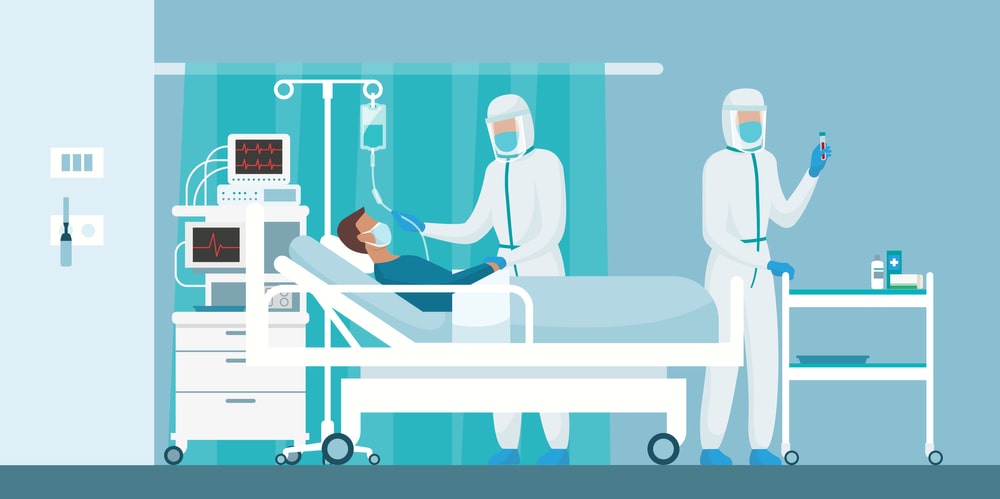


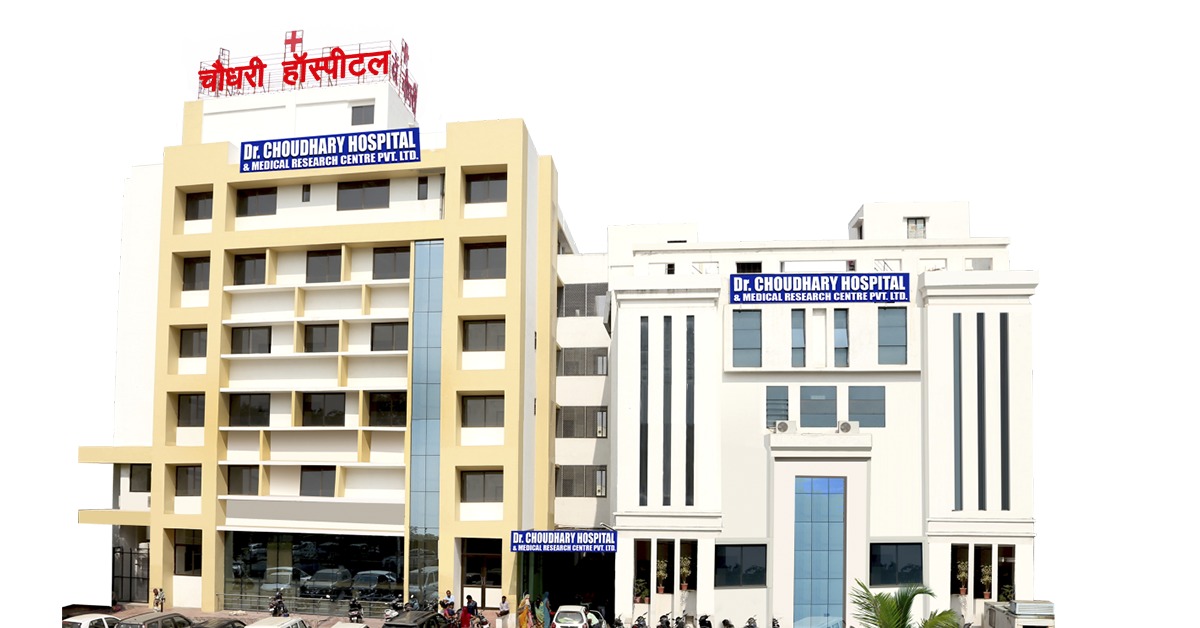
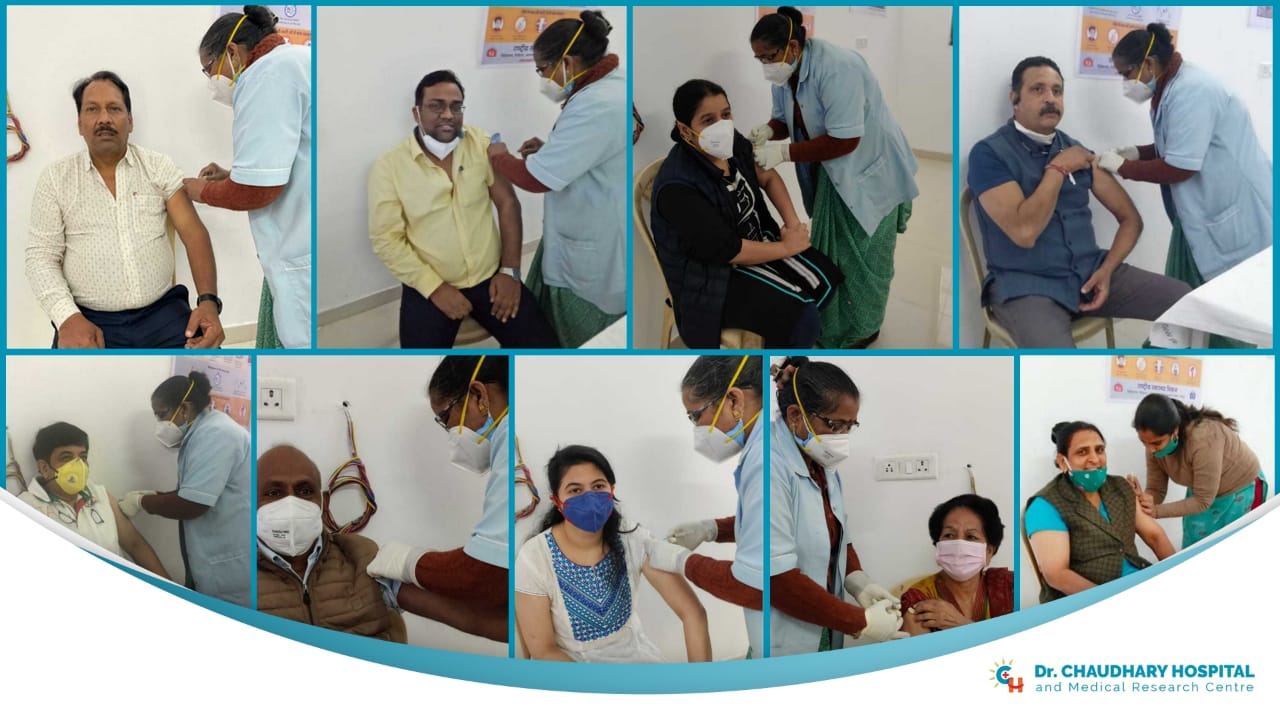
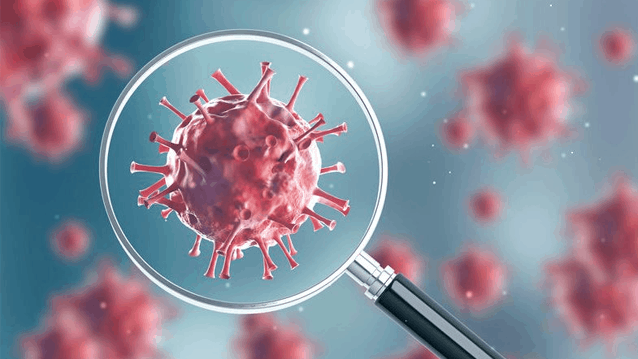
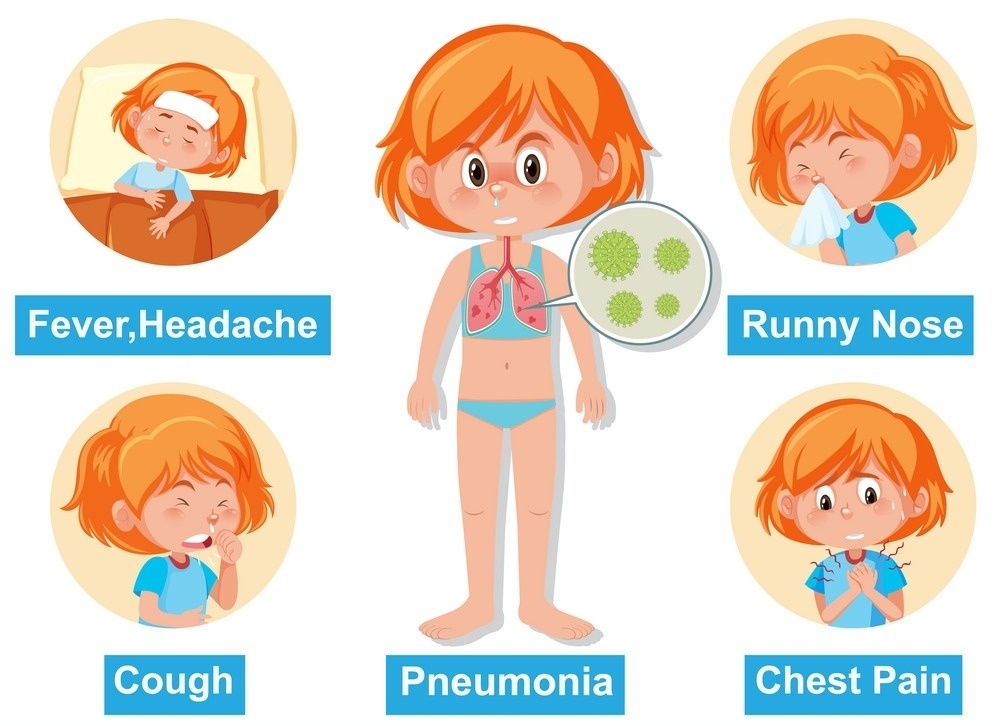
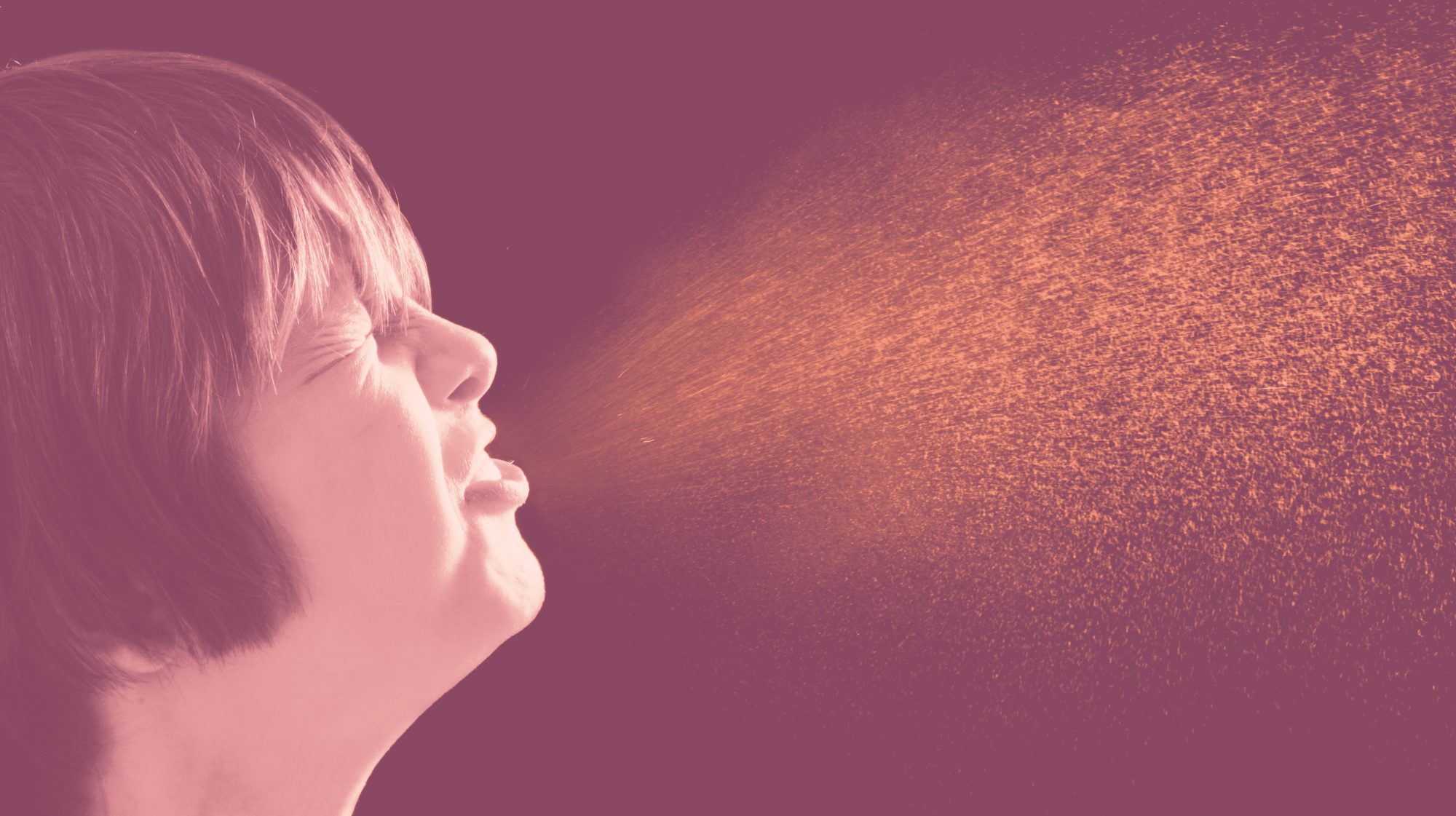 Coronavirus is transmitted through human contact, sneezes, or cough droplets. You might get the virus if you come in close contact with someone who has the virus or they have coughed or sneezed in the same proximity as you. According to experts, infected people who have coughed or sneezed on common surfaces like tables or chairs are also spreading the disease. Besides that, the use of unwashed hands to touch your face is also proven to be effective in the spread of coronavirus.
Coronavirus is transmitted through human contact, sneezes, or cough droplets. You might get the virus if you come in close contact with someone who has the virus or they have coughed or sneezed in the same proximity as you. According to experts, infected people who have coughed or sneezed on common surfaces like tables or chairs are also spreading the disease. Besides that, the use of unwashed hands to touch your face is also proven to be effective in the spread of coronavirus. Incubation Period refers to the time between catching the virus and when the body begins exhibiting symptoms of the disease. As per experts, the incubation period of COVID-19 is between 1-14 days, mostly around five days. This might range for the current data will be updated when a deeper study of the new data would become available. It is best suggested by doctors and experts to remain under quarantine and assess the symptoms.
Incubation Period refers to the time between catching the virus and when the body begins exhibiting symptoms of the disease. As per experts, the incubation period of COVID-19 is between 1-14 days, mostly around five days. This might range for the current data will be updated when a deeper study of the new data would become available. It is best suggested by doctors and experts to remain under quarantine and assess the symptoms.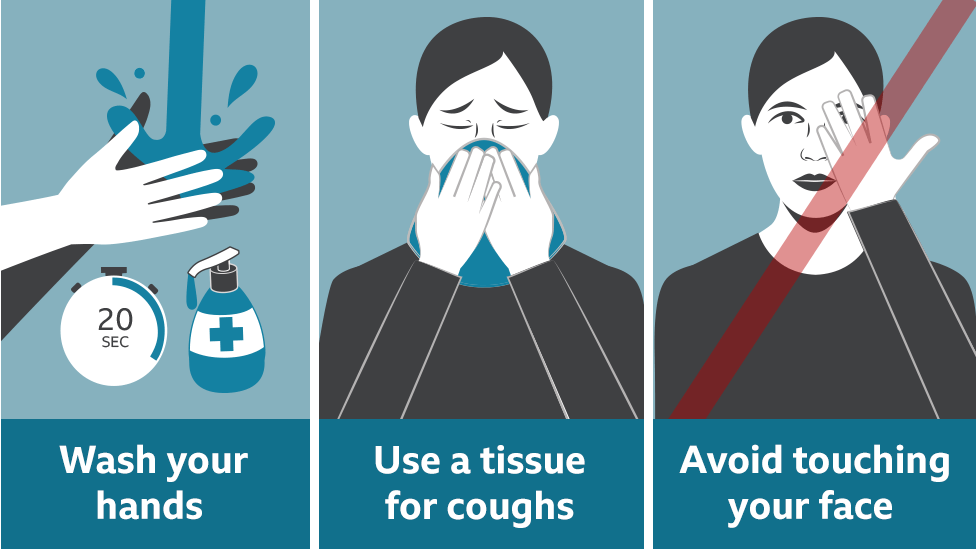 While there is no vaccine available to prevent infection with the new coronavirus, you can take measures to minimize your risk of infection.
While there is no vaccine available to prevent infection with the new coronavirus, you can take measures to minimize your risk of infection.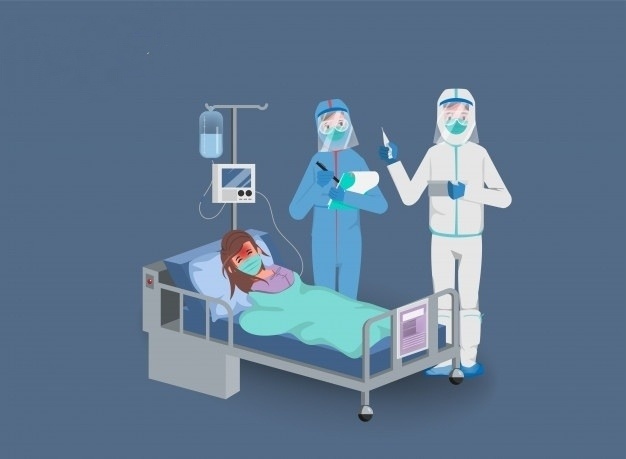 In case of change in body temperature or cough, experts suggest that anybody with prominent symptoms should stay home for at least 7 days. In case they live with family, they should live in their home for at least 14 days. This is suggested to prevent the disease from spreading further; outside the home. In case the symptoms continue to last or grow than seven days, you should call for medical service.
In case of change in body temperature or cough, experts suggest that anybody with prominent symptoms should stay home for at least 7 days. In case they live with family, they should live in their home for at least 14 days. This is suggested to prevent the disease from spreading further; outside the home. In case the symptoms continue to last or grow than seven days, you should call for medical service.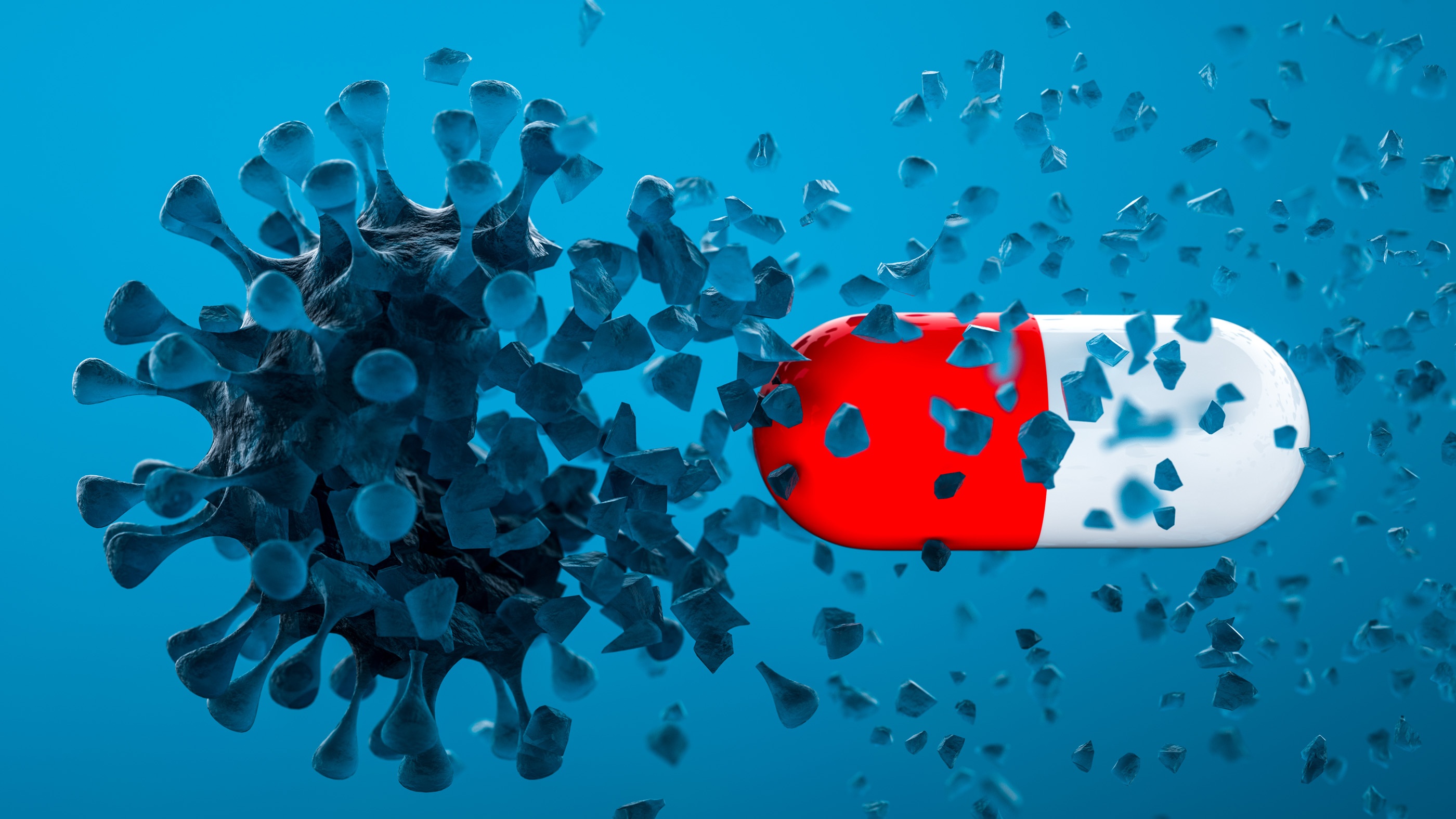 At present. there is no clearly approved treatment for COVID-19 and no cure for the infection. Although therapies and vaccines are currently under review. At the time being, all treatments focus on treating symptoms as the infection is rapidly progressing.
At present. there is no clearly approved treatment for COVID-19 and no cure for the infection. Although therapies and vaccines are currently under review. At the time being, all treatments focus on treating symptoms as the infection is rapidly progressing.